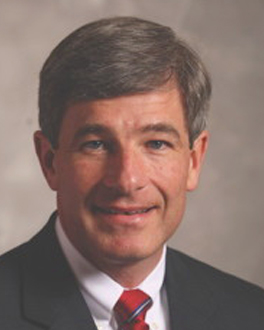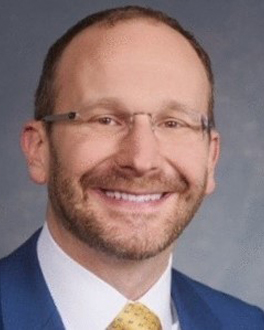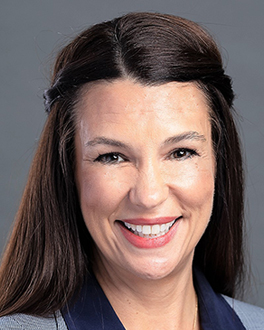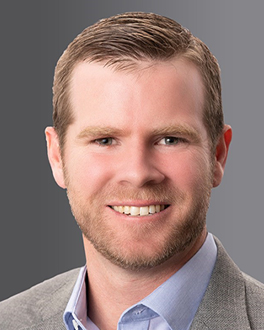Advocating for Value-Based Care and I-SNPs
7/26/2022
Population Health Management
Population health management (PHM) aims to improve the health and quality of life for a targeted group of patients through care coordination, data analytics, risk stratification, and interventions targeted at the individual, group, and community levels. Here four members of the AHCA/NCAL Population Health Management Council explain why PHM is important and how more providers can transition to provider-owned institutional special needs plans (I-SNPs).
Participants:
- Rick Grindrod, chief executive officer, Provider Partners Health Plan
- Marc Hudak, chief growth officer, Longevity Health Plan
- Amy Kaszak, president special needs plans, AllyAlign Health
- Hank Watson, chief development officer, American Health Plans
Provider Magazine: Why do you consider your involvement with the Population Health Management Council so crucial?
 Rick Grindrod: We appreciate AHCA/NCAL facilitating the Council and all the work that goes into creating value for its members. Provider Partners Health Plan prioritizes its involvement with the Council to create a more unified voice in advocating for skilled nursing facility (SNF) providers in a value-based payer and regulatory environment, particularly to CMS. It is also important to become a more unified voice in advocating for a more value-based approach to our SNF provider colleagues.
Rick Grindrod: We appreciate AHCA/NCAL facilitating the Council and all the work that goes into creating value for its members. Provider Partners Health Plan prioritizes its involvement with the Council to create a more unified voice in advocating for skilled nursing facility (SNF) providers in a value-based payer and regulatory environment, particularly to CMS. It is also important to become a more unified voice in advocating for a more value-based approach to our SNF provider colleagues.
 Marc Hudak: Longevity Health Plan joined the Council to collaborate with and to establish mutually beneficial working relationships with SNF operators who are committed to successfully transitioning to value-based care. Over the past three years, we’ve worked hand in hand with the Council and its members to deploy critically important lobbying strategies that meet the unique needs of provider-sponsored I-SNPs, to share best practices and support SNF operators who are new to I-SNPs, and to build new alliances and partnerships.
Marc Hudak: Longevity Health Plan joined the Council to collaborate with and to establish mutually beneficial working relationships with SNF operators who are committed to successfully transitioning to value-based care. Over the past three years, we’ve worked hand in hand with the Council and its members to deploy critically important lobbying strategies that meet the unique needs of provider-sponsored I-SNPs, to share best practices and support SNF operators who are new to I-SNPs, and to build new alliances and partnerships.
 Amy Kaszak: AllyAlign Health (AAH) is one of the original supporting partners of the Population Health Management Council. Our mission is to improve the health, happiness, and dignity of seniors. Working with the Council supports these aims, both through advocacy for policy changes that directly impact how seniors living in senior housing access and pay for health care, and through sharing best practices for improving the quality of life on senior living campuses.
Amy Kaszak: AllyAlign Health (AAH) is one of the original supporting partners of the Population Health Management Council. Our mission is to improve the health, happiness, and dignity of seniors. Working with the Council supports these aims, both through advocacy for policy changes that directly impact how seniors living in senior housing access and pay for health care, and through sharing best practices for improving the quality of life on senior living campuses.
 Hank Watson: The word transformative tends to be overused in the long term care (LTC) space. But the transformative potential of nursing home owners owning the development and operation of Medicare Advantage I-SNPs is real. The creation of the Council was an early recognition by AHCA/NCAL of not only the potential of this model, but also the significant learning curve the industry faced to refine the model to best serve the residents and facilities. Over the years, the Council has demystified the process and operation of provider-owned I-SNPs. This effort has supported the provider-owned I-SNP becoming ubiquitous.
Hank Watson: The word transformative tends to be overused in the long term care (LTC) space. But the transformative potential of nursing home owners owning the development and operation of Medicare Advantage I-SNPs is real. The creation of the Council was an early recognition by AHCA/NCAL of not only the potential of this model, but also the significant learning curve the industry faced to refine the model to best serve the residents and facilities. Over the years, the Council has demystified the process and operation of provider-owned I-SNPs. This effort has supported the provider-owned I-SNP becoming ubiquitous.
PM: What goals are you hoping to achieve by serving on the PHM council?
RG: We need to protect the existence of population health models including I-SNP and accountable care organizations (ACO)/Reach. We need to advocate for reasonable regulatory changes. We need to propose and promote model changes that allow the SNF and LTC sponsors of population health companies to better serve SNF and LTC residents (i.e., allowing attribution of entire SNF/LTC populations or designation of all SNF patients as high needs).
MH: We are highly motivated to continue as a council partner to serve as both a catalyst and an enabler to skilled nursing facilities and assisted living operators who are looking to succeed in the future of value-based care.
AK: From our founding in 2013, AAH has worked to ensure that senior living operators—SNFs, assisted living (AL), memory care, and Life Plan/continuing care retirement communities (CCRCs)—have a voice and a “place at the table” when CMS and other payers are developing value-based care models impacting seniors living in senior housing. PHM is an important ally in our campaign to educate the senior living industry on the importance of value-based care solutions and in advocating for payment and policy solutions with CMS that benefit residents and support senior living operators.
HW: By serving on the Council, I hope that the provider-owned I-SNP model expands across the sector as more providers embrace it. My goal is that providers shift their mindset from “should I own an I-SNP?” to “how do I optimize my I-SNP for my residents and facilities?”
PM: What opportunities do you see for the long term care provider-owned space?
RG: There is a huge opportunity for SNF operators in this space. Value-based care will reward operators that improve care and reduce cost. The facilities see enhanced revenue opportunities; the SNF/LTC residents receive higher quality, more timely care, and a better overall experience; and the government achieves their goal of reducing per capita cost.
AK: Even amid a staffing crisis, rising inflation, and increased labor costs, long term care operators have the opportunity to take the lead in value-based care models for their residents. Provider-owned Medicare Advantage SNPs are one way to do this, but AAH also sees other models, including provider-centric SNPs and new ACOs as opportunities for more senior living organizations to participate in a meaningful way with managed care. In AAH plans, partner communities can expect to see per-resident revenues increase by as much as 30 percent, while preventive primary care models reduce hospital readmissions by 39 percent, all while achieving a high satisfaction rate with plan and ACO members. These models can extend value-based care participation to communities in AL, memory care, senior affordable housing, and Life Plan/CCRC.
MH: We are clearly headed in the direction of more innovative care models and rewarding providers for improved health outcomes. Longevity has demonstrated that we are uniquely positioned to create customized partnership models that enable our partners to materially improve clinical outcomes and to succeed in this rapidly evolving value-based care landscape. We believe there has never been a more important time to make this transition and we could not be more excited with the opportunity to serve, innovative, and collaborate with existing and new partners to thrive as leaders in this space.